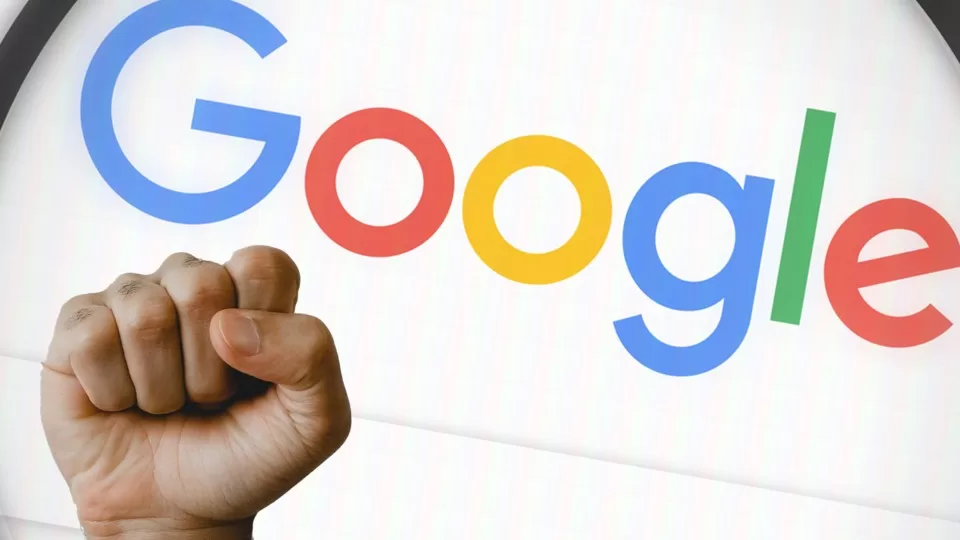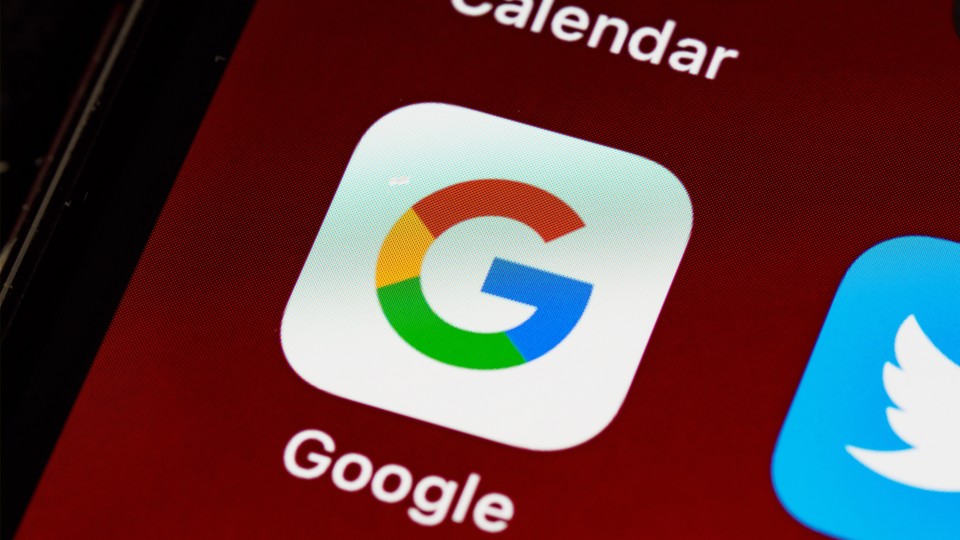With “google,” the search engine has long since become part of everyday language. (Image source: fotohansel via Adobe Stock)
In 1997, the Altavista search engine was still the queen of search engines with 50 million user queries per day. Now, 26 years later, Altavista is only known to amateur historians.
Google, on the other hand, is now synonymous with searching the Internet.
But how did Google actually develop into a monopoly-like top dog – and why is that problematic?
1998: Larry Page and Sergey Brin founded Google
At the September 4, 1998 The two Stanford graduates Larry Page and Sergey Brin founded the company Google.
The two men are initially unsure whether starting a business is the right decision. Brin’s doctoral supervisor is even said to have said: “If this Google thing works, great. If not, you can come back and finish your dissertation.”
For eighteen months, Page and Brin struggled in Silicon Valley to license the technology behind Google to existing search engine providers, including Yahoo, Excite and Infoseek. Without success. Ironic, because companies like Yahoo now see themselves as, at best, footnotes in the history of search engines.
But how did the two students’ project become a success?
A familiar image: the Google icon on the smartphone display. (Image source: Brett Jordan via Unspalsh)
What is Google’s secret recipe for success?
The pair’s student project answered 10,000 user queries per day in the summer of 1998. Spurred on by their success, Page and Brin founded their own company.
Two years later, seven percent of users used Google, still outperformed by Altavista, which is visited by 18 percent of users. Above all, Google gained a competitive advantage through cleverly sorted search results. The algorithm behind it: PageRank named after Larry Page.
Because a search engine was nothing new even in 1998. Searchable indexes of websites accessible on the Internet had existed for about five years at that point. The trick of Google search: The machine weights the results based on the number of links on a page.
And today? Today Google has a market share of 92 percent. Followed by Microsoft’s search engine Bing with a 3 percent market share. For comparison: Duckduckgo, which is concerned about privacy, has less than one percent market share.
Success in numbers: 100,000 searches Google processes every second today.
However, many young people use video platforms such as Tiktok or YouTube like classic search engines – or go directly to the social network Reddit, for example. Searching via YouTube shouldn’t bother Google much, because the video platform belongs to Google.
Google has achieved an incomparable triumph with its search engine – but it has its critics.
“Google, Google on the screen, who is the most inquisitive user in the land?” (Image source: Nathana Rebouças via Unsplash)
Search engines abroad and criticism of Google
An excess of ads as search results or poor search results are aspects that can be criticized about the current Google. Although lettering refers to advertisements, according to Dirk Lewandowski, Professor of Information Systems, many users are not able to “distinguish between what is an ad and what is a search result.”
Already knew? There are also other, quite successful search engines abroad. However, their radius is limited to their home countries. For example Baidu in China or Yandex in Russia.
The fact that the Google search engine is not only enormously successful, but also remains so – there is a lot of money behind it. Up to 20 billion dollars Google is said to have paid Apple last year and thereby bought its place as the default search engine on iPhones and Macs. A practice that cannot be done without legal consequences remains.
Added to this is the inertia of users who prefer to use a familiar search engine that is already installed on their operating system instead of laboriously looking for alternatives.
In addition, Google is now “too big to fail”. Companies are looking for the largest possible target groups. That’s why they allow Google to crawl their websites. A privilege that is often granted to smaller search engines. Companies struggle to appear at the top of Google searches.
For about five years, Google has not only secured its supremacy through PageRank. By creating a semantic context for search terms, Google guesses what users are most likely to want to know as soon as they enter certain words one after the other in the search mask.
Dirk Lewandowski also confirms Google’s supremacy. He says:
»There is no real competition in the market and I don’t see that that can change under the current conditions.«
Speaking of the Internet: If you have a TV socket in your bedroom, turn it into a high-speed Ethernet network
Is Google an integral part of your everyday life? Are you fascinated by such giant tech companies? Is Google a mysterious black box for you or just a helpful tool? Do you find what happens with the search engine to be opaque? Feel free to write us your opinion on this in the comments.




